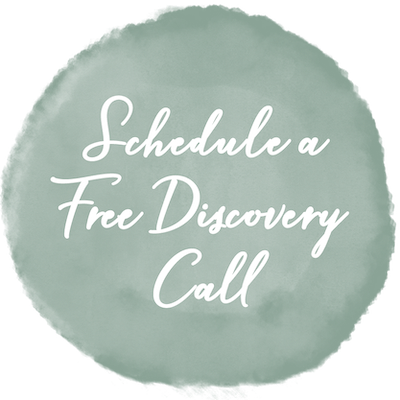Lately, I believe many of us are carrying a sense of quiet dread in our bodies - a grief for what’s happening in the world, and fear about what might come next. And I notice how easily my nervous system can flip between hyper‑vigilance and numbness when the headlines feel relentless. And I don’t even seek out news headlines.
What I’ve come to appreciate, both personally and with clients, is that there is a both/and that we can practice: we can stay engaged with the world we care about, and we can also tend to our minds, bodies, and spirits so that our care feels sustainable. Self‑care isn’t self‑distraction but rather the foundation that lets us show up with steadiness rather than burnout.
Below are some practices and perspectives that have helped me when the world feels overwhelming. Take what resonates, leave the rest, and adapt as you need. Your sense of capacity will ebb and flow.
Create a compassionate “news container”
- Try to choose your sources on purpose eg. two trusted outlets, no autoplay video, avoid graphic content.
- Try to set time boundaries eg. one or two check‑ins per day, at set times, for a set length (for example: 15 minutes after lunch; not before bed).
- Try to close the loop eg. after consuming hard news, do a brief grounding practice (see below) before you move on.
Anchor the body first
When we’re flooded, the body relies on signals of “you are safe enough in this moment” before the mind can make meaning.
- Long exhales. In for 4, out for 6. Hand on heart or cheek. Three minutes can change your state.
- Dropping Anchor (from ACT): Press your feet into the floor. Straighten your spine. Notice five things you see, three you hear, one you feel on your skin. Come back to what you’re doing now.
- 5‑4‑3‑2‑1 grounding. Name 5 things you see, 4 feel, 3 hear, 2 smell, 1 taste.
- Move what’s pent‑up. Shake your hands out, take a brisk 5‑minute walk, or stretch your hips/hamstrings. Mobilizing our legs often helps with fear.
- Warmth and nourishment. A warm drink, a blanket across your shoulders, a regular meal. Basic care goes far when the world feels unsafe.
For more guidance on working with the mind and body through difficult emotions, you can visit this previous post.
Offer your mind kindness and clarity
- Self‑Compassion Break (Kristin Neff):
- This is a moment of suffering.
- Suffering is a part of being human.
- May I be kind to myself in this moment.
- RAIN (Tara Brach): Recognize what’s here, Allow it, Investigate with care, Nurture with compassion. I find that two or three minutes is enough.
- The “Yes” practice (Tara Brach). When you notice inner resistance - tightness, rumination - try silently repeating Yes, yes to what’s here for 3-5 breaths.
For more guidance on practicing self-compassion during your recovery journey, you can read my previous post here.
Name your circle of control
I think it's easy to feel helpless when our feeds span the globe. Try this exercise to feel less overwhelmed and powerless:
- Within my control: my breath, my boundaries, my giving, who I support, how I speak, how I rest.
- Within my influence: my community, who I call/email, what I amplify, where I spend my money.
- Outside my control: the rest.
Try choosing one small, values‑aligned action from the first two circles (eg. make a donation, call a representative, attend a local event, support a mutual aid group, check on a neighbor), then deliberately close with grounding and a kind word to yourself.
Let connection be medicine
In times of collective distress, isolation can magnify our suffering, while connection can help regulate our nervous systems.
- Decide who’s in your circle of care eg. two or three people you can text, “Today feels heavy,” and receive a simple, “I’m here.”
- Co‑witness the news. If you choose to watch or read something difficult, try to do it with someone and debrief for five minutes after.
- Seek spaces that share your values eg. a faith community, book group, support group, mutual aid - places where your caring feels mirrored back.
Make room for grief, and for ordinary joy
Grief is an honest response to a hurting world and it doesn’t go away because we try not to feel it; rather, I believe it becomes easier to carry when we allow it.
- Set aside a small ritual time eg. light a candle, put your hand on your heart, say the names/places on your mind, breathe.
- Let tears come if they want to. Crying is the nervous system releasing pressure.
- Give yourself permission for pockets of joy eg. a good meal, a laugh with a friend, a sunset. I believe joy doesn’t betray the suffering of others but rather fuels our capacity to keep caring.
Gentle boundaries with doom‑scrolling
- Try to keep news off of your pillow. Try to avoid headlines in the first or last hour of the day.
- Curate your feed. Mute/snooze accounts that spike your anxiety; follow voices that offer context, nuance, and hope.
- Ask the helpfulness question: Is more information helping myself or anyone else right now? If not, try to step away and do one nurturing thing within reach.
If you’re in eating disorder recovery
Collective stress can often stir up old coping strategies. You may notice more body checking, new food rules, or urges to numb out. This is so understandable - and it’s also a cue to try to reach out for support.
- Try to keep meals and snacks regular. Structure can help reduce emotional reactivity and keeps your brain nourished.
- Name the trigger. “The world feels chaotic, and my eating disorder is offering control.” Then choose one grounded alternative: text your support person, take a shower, make tea, step outside.
- Try to notice tendencies towards restriction or over‑exercise disguised as being helpful in some way. Ask: would I recommend this to someone I love who’s overwhelmed? If not, it’s likely coming from your eating disorder part.
- Try to reach out. A few supportive exchanges can prevent a spiral.
A 10‑minute overwhelm reset
Use this any time you feel flooded.
- Turn off the stream (1 minute). Close tabs/apps, put your phone down.
- Breathe (2 minutes). In for 4, out for 6, hand on heart.
- Move (3 minutes). Shake out hands, walk down the hall, stretch calves/hips.
- Nourish (1 minute). Drink water or make a warm drink.
- Connect (2 minutes). Send one text: “Thinking of you” or “Today feels heavy.”
- Intend (1 minute). Name one small action you’ll take today, and one way you’ll rest.
A note on permission
Try to remind yourself that you don’t have to earn rest by fixing everything first, and that you don’t have to read every update to prove that you care. Try to remind yourself that your steadiness and wellbeing matters, and that the part of you that wants to help is precious, and that caring for it is part of your contribution.
And if the world feels heavy on your chest, place a hand there for a moment and breathe. Your care is needed, and so are you. May you feel held in the small, sustainable ways that let your heart keep opening.
With love and appreciation for you and your heart,

Journaling Prompts:
- What sensations tell me “I’m saturated” with news? Where do I feel it in my body?
- If I created a compassionate news container this week, what would it look like?
- What are three self‑care non‑negotiables that help me stay grounded (for example: eat breakfast, go outside once, text a friend)?
- What’s one achievable action aligned with my values this week? What support do I need to do it?
- What’s one boundary I can set with my media intake? How will I remind myself?
- Write a short note from your future, steadier self to you today. What does it want you to know?
Support For Your Journey
If you feel you could use more support on your eating disorder recovery journey I would love to connect with you. Contact me to book a free video discovery call so that we can explore if working together would be a good fit. I would love to hear from you.











